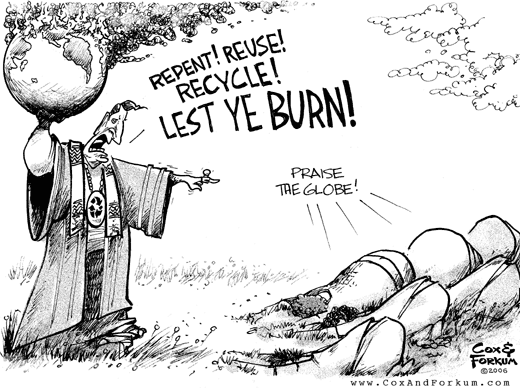Charlemagne
The danger of unemployment
Rising unemployment will test many governments’ commitment to labour reforms

SO FAR this recession has not been all bad for Europe. Above all, the past few months have looked good for the European concept of “flexicurity”. First coined in Denmark, this is an appalling word for an appealing idea: that Europeans will tolerate more flexible labour markets (ie, quicker firing) so long as they have the security of generous social assistance if things go wrong.
Admittedly France has seen a spate of “bossnappings” by angry workers; and politicians are unpopular in such hard-hit places as Latvia, which is imposing cuts of 20% or more in public-sector pay. But there has been no sign of the continent-wide unrest that gloomsters once predicted. Although unemployment is soaring in countries like Spain, in Germany it has not risen as much as it might have done, given the decline in GDP.
For several months companies, employees and governments have absorbed much of the shock of the recession through schemes like short-time working, unpaid leave, training leave or by using production workers to do repairs. But talk to officials in Brussels or business chiefs across the continent, and anxiety is building. These job-saving schemes were essentially bets on a short recession. Companies are now telling the politicians that, if the economy does not pick up by the autumn, some big redundancies loom.
Assuming that a recovery does not materialise this year, the European model of flexicurity will face three overlapping threats. The first involves money. Several European Union countries have asked their citizens to accept flexible labour laws, which make hiring and firing easy, on the basis that this will lead to economic good health. Yet some may struggle to keep “the security side of the bargain,” says Jakob von Weizsäcker of Bruegel, a Brussels-based think-tank. If the crisis drags on or deepens, he frets that governments may have to choose between draconian cuts in welfare and fiscal irresponsibility.
The second threat involves cohesion, and the different things that flexicurity means. To put it simply, the two halves of the bargain have been unevenly shared out: some people have provided Europe with much of its flexibility while others have hogged most of the security. Consider the car industry, where a gap yawns between a handful of countries with their own national carmakers, and others where cars are merely assembled. The French government has talked of giving aid to carmakers that “bring jobs home” to France; the German government appeared to choose an Austro-Russian consortium to rescue Opel in part because it promised to keep factories and jobs in Germany, at the expense of factories elsewhere.
Inequalities yawn in labour markets too. In countries like Spain, firms have laid off employees on temporary contracts (many of them young or migrants), rather than spending a fortune shedding staff on permanent contracts, which in Spain offer up to 45 days’ redundancy pay for every year worked.
There are also big regional differences in welfare benefits. European Commission officials estimate that in most of western Europe, between 80% and 90% of the unemployed are entitled to some social assistance. In southern Europe the coverage is patchier. And in parts of eastern and central Europe as few as 30% of jobless citizens receive significant welfare payments (though the coverage is broader in Slovenia and the Czech Republic).
The third and biggest threat to flexicurity is that it will prove politically costly to defend if unemployment takes off. Across Europe reformist officials share the same fear: that governments will revert to “solving” unemployment by easing workers out of the labour market altogether. They have form. In the downturns of the 1980s and early 1990s, many millions of workers were bundled into early retirement or on to disability schemes. For governments, the attractions were clear, because such departures had an instant effect on the unemployment figures. Early retirement also seemed kinder than mass lay-offs. And restructuring had a pleasing air of modernity about it: Europe was moving upmarket and waving goodbye to old labour-intensive businesses like building ships or digging coal.
A lumpen proletariat
Back then many politicians, unions and workers also fell for the “lump of labour” fallacy, which suggests that there is a fixed amount of work to be done at any given time, available for slicing up and sharing out according to policymakers’ will. So waving goodbye to 57-year-olds would automatically free up jobs for the young. (The same thinking led French Socialists to dream up the 35-hour week, a measure now hollowed out by a myriad of exemptions.) To companies, getting rid of their oldest workers was also attractive. They tended to be paid according to seniority, rather than productivity, and were costlier to sack.
Only later was this shrinking of the European labour pool revealed as a mistake. When demand picked up, valuable human capital had left the market forever. And terrible damage had been wrought to the solvency of pension systems, just as demographic trends were turning and the continent was ageing fast.
European governments have undertaken a fair number of reforms since then. And thus far few EU leaders have talked openly about encouraging early retirement as a cure for unemployment. Indeed, in countries such as the Netherlands and France, governments have actually done the opposite, reopening public debates on raising the retirement age to safeguard the solvency of their pension systems.
But high unemployment scares politicians more than most other things. Reformers are watching carefully for any signs that the mistakes of the past are about to be repeated. If the recovery takes its time to gather pace, much danger awaits.



